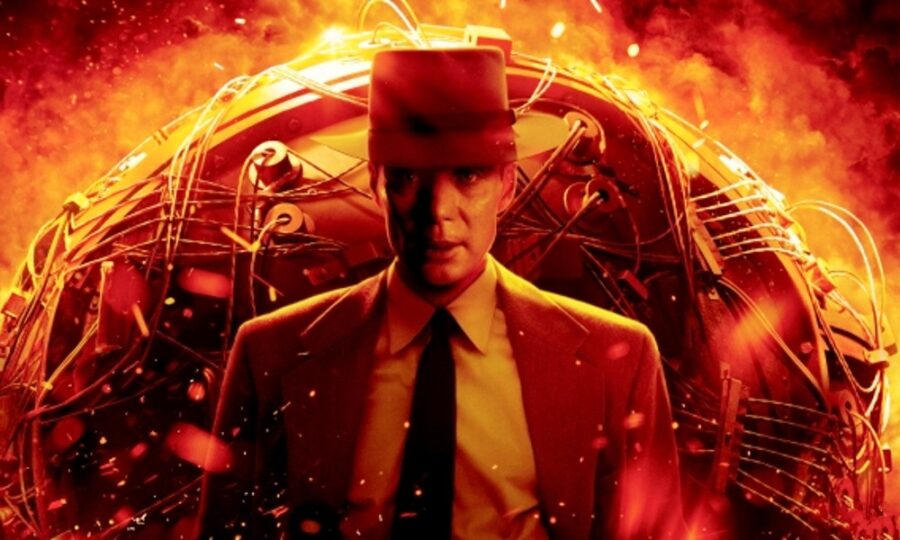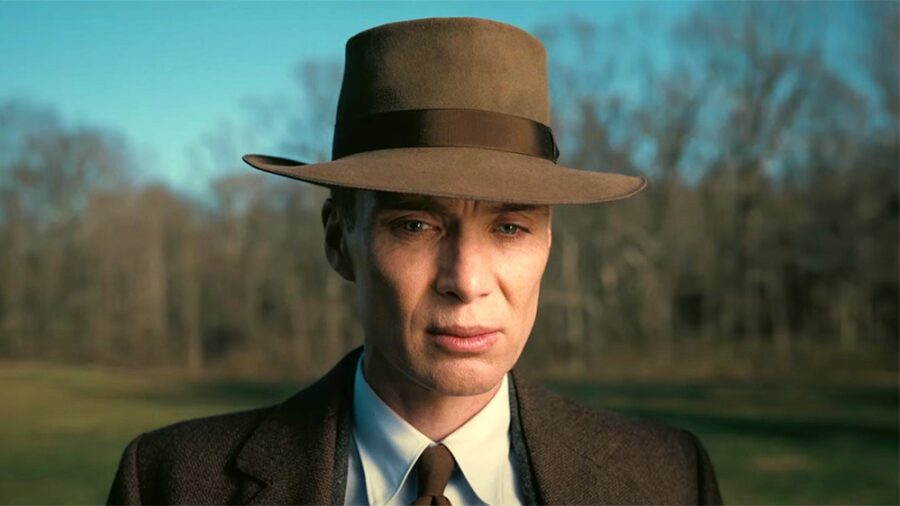Oppenheimer’s Family Wants Christopher Nolan To Remove Scenes From The Movie

If you watch movies long enough, you quickly learn that “based on a true story” often means that the writers and directors take some major artistic liberties to make films more exciting, dramatic, or just more likable. And even the biggest films like Christopher Nolan’s Oppenheimer aren’t immune to this, and nobody knows this better than Oppenheimer’s own grandson. According to The Hollywood Reporter, Charles Oppenheimer wished Nolan had removed a scene that showed his grandfather trying to kill his professor by injecting an apple with cyanide.
In Oppenheimer, Cillian Murpy’s titular character attempts to kill someone with a poisoned apple, and the real-life grandson of J. Robert Oppenheimer wishes that scene never made the final cut.
To Nolan’s credit, the events of this scene aren’t something that he manufactured, whole-cloth, to make his film more exciting. The screenplay for the film was based on the 2006 biography American Prometheus: The Triumph and Tragedy of J. Robert Oppenheimer, and that book includes details about this alleged incident. But as Charles Oppenheimer points out, the authors of that book are also very transparent about the fact that they don’t know if this incident really happened or not.
As Oppenheimer’s grandson says, the lack of any definitive evidence means that “there’s no record” of his famous grandfather “trying to kill somebody.” He notes that the scene legitimizes “a really serious accusation” that effectively amounts to “historical revision” because no “enemy or friend” of J. Robert Oppenheimer ever thought the cyanide poisoning attempt ever happened.

And he has a pretty simple theory for why this alleged lie about his grandfather continues to spread and ultimately ended up in Christopher Nolan’s latest film.
“There’s no record of him trying to kill somebody. That’s a really serious accusation and it’s historical revision. There’s not a single enemy or friend of Robert Oppenheimer who heard that during his life and considered it to be true.”
Charles Oppenheimer
According to Charles Oppenheimer, “facts get dragged through a game of telephone” when it comes to historical figures like his grandfather.
For example, even though the biography’s authors admit they have no proof for this claim, the book still emphasizes “an unsubstantiated rumor” in a transparent effort to “make it interesting” Years later, Nolan uses the biography to help him more accurately portray the life of J. Robert Oppenheimer and unintentionally helps to legitimize an alleged lie that paints a very bleak picture of a very complicated man.
Still, Charles Oppenheimer bears no real ill will toward Christopher Nolan for that particular scene in Oppenheimer. He claims that the director made sure this particular incident was “treated vaguely” and that fans would only know what it was referring to if they knew the “incredibly deep backstory” of the biography.
He also respects Nolan enough as a director that even though he visited the set twice, he simply could not seriously think about “giving advice about movie stuff to Nolan” for the simple reasons that “he’s an expert, he’s the artist, and he’s a genius in this area.”
Nolan uses the biography to help him more accurately portray the life of J. Robert Oppenheimer and unintentionally helps to legitimize an alleged lie that paints a very bleak picture of a very complicated man.
And in a weird way, the fact that this was the one scene Oppenheimer’s grandson would have removed from the film is a testimony to how otherwise accurate and engaging the entire film really is. It’s an ambitious film about one of history’s most complex figures, and it was likely tempting for Inception director Nolan to add many dramatic flourishes or even outright fabrications to the story in order to make it sound more interesting.
But he didn’t need to add or embellish anything for the simple fact that when it comes to Oppenheimer’s life, truth was truly stranger than fission.













